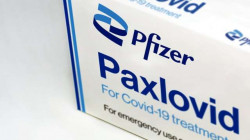The first treatment for Alzheimer’s disease is here

On June 7, the U.S. Food and Drug Administration (FDA) approved aducanumab, developed by the U.S.-based biotech Biogen and Japanese pharmaceutical company Eisai. But the drug’s approval comes with a caveat. The FDA is requiring Biogen to conduct an additional placebo controlled study of the drug to verify it’s effectiveness in improving people’s memory and cognitive symptoms.
That request stems in large part from the conclusion of an expert panel convened by the FDA last November, which almost unanimously decided that the evidence presented by the drug’s developers did not justify approval. The committee’s recommendation then went to the FDA, and the agency extended the deadline for making a decision from last March to June 7.
The drug’s rocky road of failed and halted clinical trials has generated divided opinions among brain experts about how useful the drug actually is, with some, including the Alzheimer’s Association, supporting approval as the first treatment for the disease—the currently approved therapies for Alzheimer’s only address the symptoms of Alzheimer’s and not its root causes—and others not convinced the data prove that the benefits of the drug outweigh its potential risks.
Aducanumab made headlines in 2016 when an early trial showed the first encouraging results of an Alzheimer’s treatment in decades. Previous efforts to develop drugs and vaccines to control the expansion of amyloid protein plaques in the brain were frustrating failures. Experts in the field were divided over whether the clusters of amyloid protein in the brain, which are the hallmark of the disease and what doctors use to diagnose it, were even the right target for a drug. Cells in the body make amyloid, but it seemed that in some people, the protein accumulated in the brain at dangerous levels, strangling delicate nerve cells and their connections and ultimately compromising memory and then other body functions. Would removing the plaques be sufficient to save memory and slow the disease?
In the breakthrough study of aducanumab, it seemed the answer was yes. Levels of amyloid in people with mild to moderate Alzheimer’s who received monthly infusions of the drug for a year were lower than those among people getting placebo. And more encouragingly, the people getting the drug seemed to show improvements in cognitive tests, an important indicator of how well they could perform daily activities like dressing themselves, driving and shopping.
The results were encouraging enough for the company to push ahead with larger late-phase clinical trials in two studies involving more than 3,200 people with mild to moderate disease. In March 2019, however, it started to seem that perhaps the initial excitement had been premature, when Biogen scientists analyzed the data from the trials and found that people randomly assigned to get the drug did no better on cognitive tests than those who got placebo. The company decided that there was no reason to continue the studies, and halted them.
Source: Time


